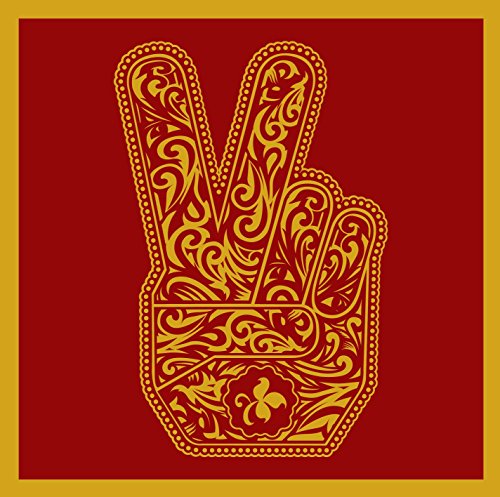
Stone Temple Pilots
Stone Temple Pilots
Release Date: May 25, 2010
Genre(s): Rock, Alternative
Record label: Atlantic
Music Critic Score
How the Music Critic Score works
Album Review: Stone Temple Pilots by Stone Temple Pilots
Very Good, Based on 7 Critics
Based on rating 8/10
A laid back, yet spicy, affair... After a considerable absence from the studio and two years since the San Diego’s foursome first re-appeared on the musical radar comes physical confirmation that they’re back in action and album number six, the follow-up to the celebrated ‘Shangri-La Dee Da’, does not disappoint. Loaded with heady guitar trips and crunching grooves, all topped off with flamboyant frontman Scott Weiland’s soulful vocal (which sounds all the better for his newly cleaned-up lifestyle), this is classic STP.
Based on rating B+
Heroin and Velvet Revolver behind him, Scott Weiland sounds downright effervescent on the first Stone Temple Pilots disc in nearly a decade. There’s nothing new here, just cheap and easy pop-rock mimicry (the Beatles, Petty, Nirvana, Bowie, Aerosmith), siphoned through spry, crunchy grunge riffs. ”Between the Lines” alludes to Weiland’s druggie past, but the ponderous soul-baring that often weighs him down has all but disappeared.
Based on rating 7/10
Stone Temple Pilots’ 2010 reunion album isn’t a song deep before Scott Weiland alludes to his checkered chemical past by singing “even when we used to take drugs,” which may not be a confession -- the singer took great pains to claim he was writing in third person for this, the sixth STP album -- but it’s easy to read between the lines, particularly when the song title invites you to do so. Despite Weiland’s knack for a fractured phrase, the kind that jams a verse or chorus into the brain, words have never been the reason to listen to Stone Temple Pilots, it’s always been their candied crunch, the way the filter ‘70s sleaze through psychedelic swirls. The brothers DeLeo are responsible for the former, and Weiland for the latter and, like it or not -- the decade-long absence suggests that they surely don’t -- they need each other, neither team sounding quite as good in their solo projects as they do working together.
Based on rating 3.5/5
Stone Temple Pilots's eponymous new album is said to mark the beginning of a new chapter for them, one in which frontman Scott Weiland is free of the heroin addiction that beleaguered him throughout the '90s and the group is free from the pressures of major-label contractual obligations—and from being cheaply tagged as Pearl Jam-lite. Oddly enough, despite courting a number of mottled musical influences, the band never strays too far from their fundamental sound. After indulging in a nine-year hiatus, they return with Stone Temple Pilots, which finds the San Diego quartet employing the same punchy guitar riffs and howling vocal melodies for which they're known.
Based on rating 6/10
Nobody ever mistook Stone Temple Pilots for beacons of originality. From the first time we heard them, we were accusing Scott Weiland of copping Eddie Vedder’s vocal style even as we were accusing the DeLeos of wishing they were Jimmy Page and John Paul Jones. Eventually they morphed into a recognizable-if-derivative band on their own merits, largely thanks to the apparently drug-fueled charisma and talent of Weiland, whose destructive habits haven’t put off the rest of the band enough to make them forget that they need him.
Based on rating 2/5
After a nine-year hiatus, Scott Weiland and Stone Temple Pilots return. There's nothing on the self-titled record that's going to blow your mind, but Weiland's voice is in surprisingly good shape and doesn't falter through the range of largely repackaged rock 'n' roll riffs that worked for STP back in the day. [rssbreak] You can't really fault the band for successfully doing much what it did in the 90s, but don't expect Purple.
Opinion: Fairly Good
STONE TEMPLE PILOTS (Atlantic) Sooner or later it happens to most long-running bands: the all-grown-up, sober-but-wiser album. That’s what “Stone Temple Pilots” turns out to be. “I’m getting old and my money’s been spent,” Scott Weiland, 42, sings in “Samba Nova,” a Brazilian-tinged ballad tucked onto the album’s deluxe version. For its first studio album since 2001, Stone Temple Pilots reconvened after Mr.

